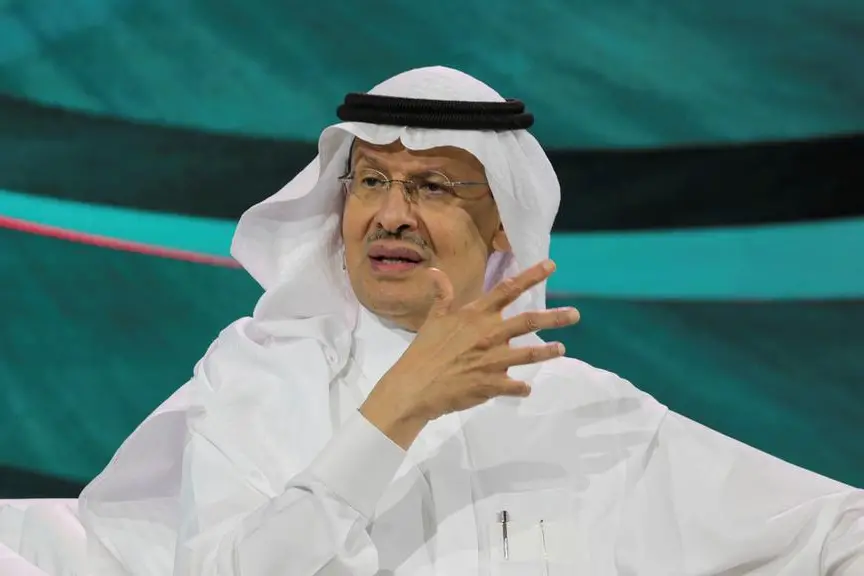PHOTO
RIYADH — Saudi Energy Minister Prince Abdulaziz bin Salman said that the OPEC+ has mechanisms that enable it to deal with the challenges of the oil market and enhance its continuing role in working to stabilize the global market.
In an interview with the quarterly bulletin issued by the Saudi Association of Energy Economics (SAEE), he said that the need for fossil fuels, especially oil and gas, would continue for decades. “The competent authorities and expert houses indicate that there would be continued growth in demand for oil in the medium and long term, and that oil will remain one of the most important sources of energy in the world,” he said. In response to calls for reducing the use of fossil fuels, the minister highlighted the continued importance of oil in the growth of the global economy.
Saudi Arabia aspires to be one of the largest producers and exporters of green and clean hydrogen, Prince Abdulaziz said while stressing Saudi Arabia’s ability to produce green hydrogen at competitive prices. “The largest green hydrogen production plant will be established in the city of NEOM with a production capacity of 250000 tons annually by 2026,” he said.
Regarding the energy transition, the minister said that the Kingdom is focusing on all energy sources, including solar energy, wind energy, clean green hydrogen, nuclear energy, and geothermal energy with the aim of reducing the consumption of liquid fuels in generating electricity and reaching the optimal energy mix.
Prince Abdulaziz said that Saudi Arabia has quadrupled its current renewable energy capacity from 700 megawatts to 2,800 megawatts by the end of 2023, with more than 800 megawatts of renewable energy sources still under implementation, and about 1,300 megawatts in various stages of development, and that the Kingdom plans to produce 200 additional megawatts this year. He said that work is being done to develop renewable energy projects to achieve the optimal energy mix by 2030.
Prince Abdulaziz stressed that Saudi Arabia is working to reduce carbon dioxide emissions, and that it has a program to replace liquid fuels. He explained that the program depends on converting electricity production and water desalination plants and industrial facilities to rely on natural gas or alternative fuels, and building renewable energy sources and new thermal plants to produce highly efficient electricity that runs on natural gas, and will be linked in the future to systems for capturing, transporting and storing carbon dioxide.
The minister said that the Kingdom aims to reach its national contributions in the field of reducing emissions at 278 million tons annually by 2030, and work is underway to build one of the largest projects to capture, transport and store carbon dioxide with a capacity of up to 9 million tons annually by 2030, and 44 million tons annually by 2035.
Prince Abdulaziz said that Saudi Arabia is an active member in a number of international initiatives and forums on climate matters, in light of Saudi Arabia’s accession to the Carbon Sequestration Leadership Forum, the Clean Energy Ministerial Conference, the Innovation Mission Initiative, the Global Methane Initiative, the Global Methane Pledge, and the World Bank’s “Zero Routine Flaring by 2030” initiative. Moreover, the Kingdom is one of the founding countries of the Net-Zero Producers Forum. Saudi Arabia recently joined the Global Carbon Capture and Storage Institute.
© Copyright 2022 The Saudi Gazette. All Rights Reserved. Provided by SyndiGate Media Inc. (Syndigate.info).





















